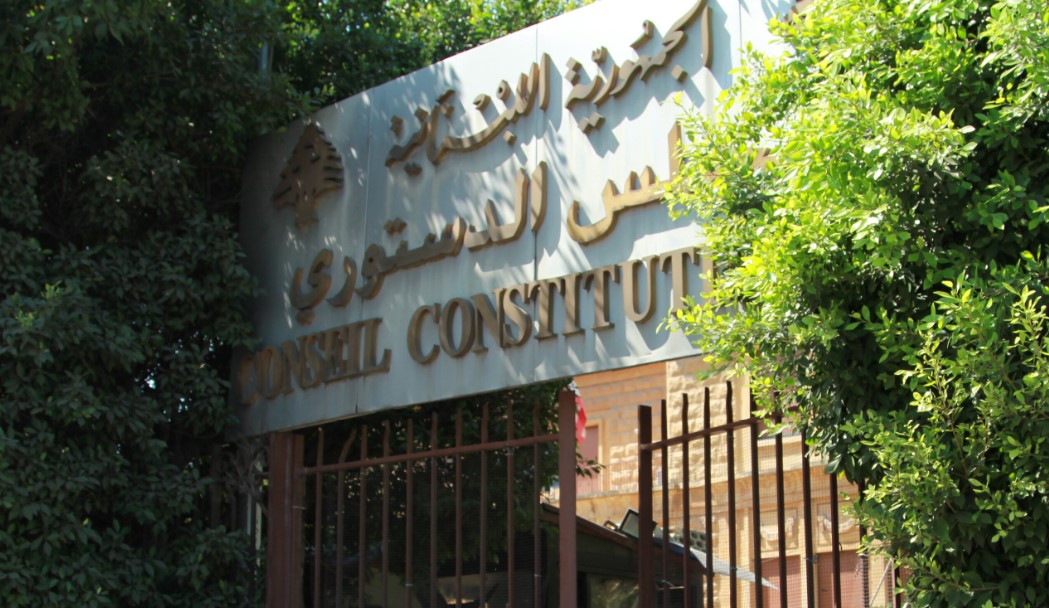Suspending Lebanon’s Constitutional Council: A Primer

After three of its ten members passed away, the Constitution Council now suffers from vacancies threatening its continued operation and ability to perform its functions. In this article we answer the most important questions raised by these vacancies and their implications.
Why Is the Constitutional Council Suspended?
Since the beginning of this year, the Constitutional Council has witnessed the deaths of three members, namely Elias Bou Eid on 2 January 2021, Abdullah Shami on 9 February 2021, and Antoine Baridi on 8 May 2021. Hence, the number of members has fallen to just seven, which is fewer than the council’s eight-member quorum.
Although the council announced the vacancies in the Official Gazette after each death, the two authorities with the power to appoint replacements – namely the government and Parliament – have taken no action.
What Are the Consequences of the Constitutional Council’s Suspension?
The Constitutional Council is exclusively responsible for reviewing the constitutionality of laws and settling disputes and challenges arising from presidential and parliamentary elections. Hence, given the current vacancies and the nonappointment of replacements, there is no authority to settle the constitutionality of challenged laws or examine challenges to such elections.
The law that established the Constitutional Council deems a challenged law to be in force if the council fails to decide on it by the deadline that the law sets. This equates to approximately one month (ten days for the rapporteur judge to write a report, five days to hold a session to deliberate over the appropriate decision, and 15 days to issue the decision). In 2009, then president of the Constitutional Council Issam Sleiman drew up several reports. In them, he declared the challenges to laws that the council’s previous membership had not examined had lapsed, as it had failed to make decisions by the legal deadlines. There is a potential legal debate over the effect of the Constitutional Council’s current suspension on the force of challenged laws: Do these laws enter into force after the aforementioned legal deadlines elapse while the council cannot convene? Or are the deadlines suspended until replacements for the deceased members are appointed and the council can once again convene, given that the quorum issue is outside its members’ control?
Presently, the issue is particularly relevant to the challenge filed with the Constitutional Council in connection with the treasury advance for Lebanon’s electricity.
Hence, the fear is that the political authorities (i.e. the government and Parliament) will keep the Constitutional Council suspended in order to pass laws not subject to any constitutional review.
Is This the First Time That the Constitutional Council Has Been Suspended?
Previously, the council was suspended on 8 August 2005, when five outgoing members ceased working and no replacements for them had been appointed because of the political division that followed late prime minister Rafic Hariri’s assassination. The council’s quorum was absent from that date to 5 June 2009, and the council was thereby unable to issue decisions on challenges filed with it during this period.
What Is the Solution?
The only way to reactivate the Constitutional Council is to appoint new members to replace the deceased ones even though the deadlines for these appointments have elapsed. In this case, the appointments must occur as follows:
- The government must appoint two new members, as should have occurred one month after it was advised of the vacancies caused by the deaths of Bou Eid and Shami. While the Legal Agenda found that the prime minister of the caretaker government deemed these appointments beyond the limits of its caretaker function (a notion he repeated when refusing to sign the decree appointing Supreme Judicial Council members), this stance is incorrect as the caretaker concept aims primarily to ensure the continued operation of the institutions.
- Parliament must appoint the third member. This it should have done within one month of being advised of the vacancy, i.e. by 21 June 2021. Any negligence from Parliament in this regard constitutes an abuse of power as it frees the laws it passes from any constitutional review.
In both cases, the replacements must be chosen from among the judges who submitted their candidatures before the legal deadlines, namely ten days after the publication of each vacancy in the Official Gazette.
This article is an edited translation from Arabic.



